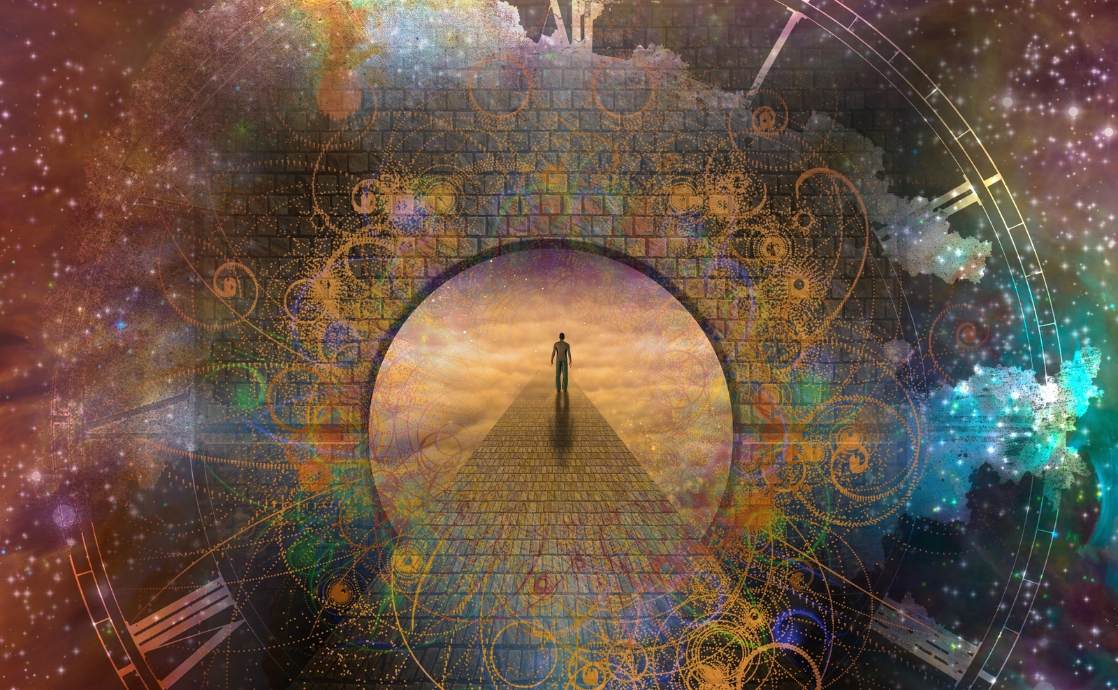The views expressed in our content reflect individual perspectives and do not represent the authoritative views of the Baha'i Faith.
What happens to our souls when we die? Are we mortal or immortal? People have asked those questions since the dawn of our species, and the Baha’i teachings offer a glimpse at the answers:
Wert thou to attain to but a dewdrop of the crystal waters of divine knowledge, thou wouldst readily realize that true life is not the life of the flesh but the life of the spirit. For the life of the flesh is common to both men and animals, whereas the life of the spirit is possessed only by the pure in heart who have quaffed from the ocean of faith and partaken of the fruit of certitude. This life knoweth no death, and this existence is crowned by immortality.
RELATED: Respecting the Dignity of the Body After Death
That passage, from Baha’u’llah’s Book of Certitude, affirms what all Baha’is believe – that our spirits live on after our bodies have fulfilled their earthly function.
That does not mean, however, that our bodies are unimportant or that we should ignore our physical existence. In fact, because the body is exalted by the immortal soul, Baha’i law requires taking care of the body in this world, and that the bodies of the deceased be treated with the utmost respect and dignity.
Throughout his writings, Baha’u’llah wrote beautiful descriptions of the fate of our eternal souls. This one focuses on our immortality:
Know thou of a truth that the soul, after its separation from the body, will continue to progress until it attaineth the presence of God, in a state and condition which neither the revolution of ages and centuries, nor the changes and chances of this world, can alter. It will endure as long as the Kingdom of God, His sovereignty, His dominion and power will endure. It will manifest the signs of God and His attributes, and will reveal His loving kindness and bounty.
In the same passage, Baha’u’llah went on to describe how that soul will be honored in the next world:
The honor with which the Hand of Mercy will invest the soul is such as no tongue can adequately reveal, nor any other earthly agency describe. Blessed is the soul which, at the hour of its separation from the body, is sanctified from the vain imaginings of the peoples of the world. Such a soul liveth and moveth in accordance with the Will of its Creator, and entereth the all-highest Paradise. … If any man be told that which hath been ordained for such a soul in the worlds of God, the Lord of the throne on high and of earth below, his whole being will instantly blaze out in his great longing to attain that most exalted, that sanctified and resplendent station ….
How does that happen? What causes the immortal soul to sanctify itself “from the vain imaginings of the peoples of the world”?
The Baha’i teachings say that selflessness, altruism, and love for humanity, all translated into a life of consistent action and service to others, can help create such a soul. In his book The Secret of Divine Civilization, Abdu’l-Baha wrote that developing a devotion to the common good, rather than spending a lifetime working for mere personal benefit, will result in “plentiful reward in the next life:”
That individual, however, who puts his faith in God and believes in the words of God – because he is promised and certain of a plentiful reward in the next life, and because worldly benefits as compared to the abiding joy and glory of future planes of existence are nothing to him – will for the sake of God abandon his own peace and profit and will freely consecrate his heart and soul to the common good.
RELATED: Death, Burial, and Human Nature
This beautiful teaching, common to all of the world’s major religions, promises us the deep spiritual happiness and contentment we all seek.
If you’re still unsure about the existence of a spiritual world after we leave this physical plane, Abdu’l-Baha offered a remarkable, abstruse, and penetrating proof in a speech he gave in Paris:
The very existence of man’s intelligence proves his immortality; moreover, darkness proves the presence of light, for without light there would be no shadow. Poverty proves the existence of riches, for, without riches, how could we measure poverty? Ignorance proves that knowledge exists, for without knowledge how could there be ignorance?
Therefore the idea of mortality presupposes the existence of immortality – for if there were no Life Eternal, there would be no way of measuring the life of this world!
Consider, for a moment, that deep concept, and reflect on the existential idea it represents. In this existence, we know and understand all things on the basis of the principle of relativity – and relativity simply means symmetry and consistency in the laws of nature.
This symmetry offers us polar opposites everywhere, and also allows us to define a thing by its absence. Darkness is the absence of light, as Abdu’l-Baha pointed out, just as cold is the absence of heat. In the same way, our mortality proves the existence of immortality.
You May Also Like
Comments

















May it be so. Amen.